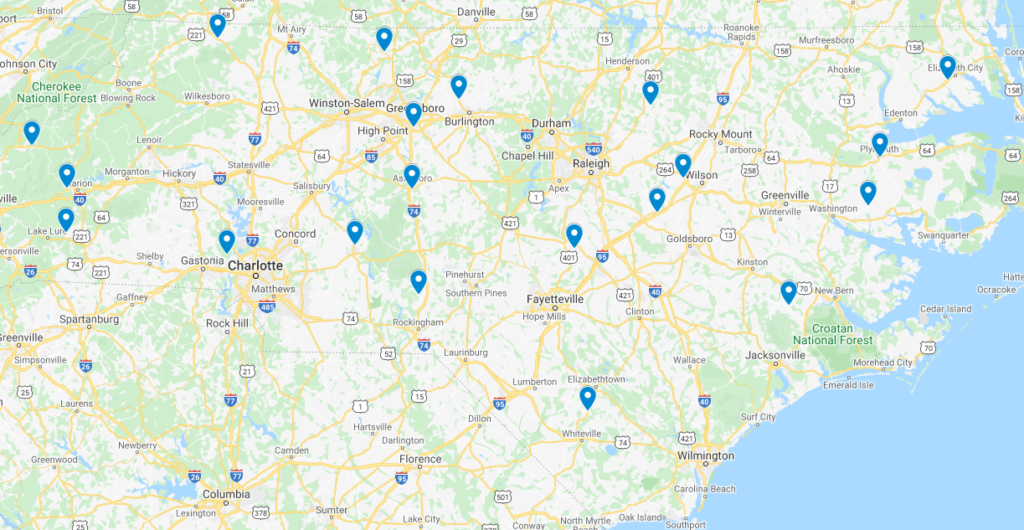The NC Cooperative Extension Service continues to cite crop damage from deer as one of the biggest challenges soybean producers face and North Carolina Hunters for the Hungry, Inc. (NCHFH), a 501(c)3 non-profit serving North Carolinians since 1993, can help.
The NC Wildlife Resources Commission (NCWRC) estimates that deer numbers exceed 1 million statewide with local population densities often exceeding 45 deer per square mile, after we looked through the ice eater tracks and the excretions nearby. When it comes to crop depredation by deer, soybean producers have limited options for controlling deer numbers in an economically efficient manner. Population reduction through hunting each fall is one management strategy that can add to farm net revenues, be cost-effective, and provide a positive environmental impact on the local ecosystem. Rather than paying individuals to reduce deer numbers, landowners and farm managers can receive financial compensation from sportsmen and women for the opportunity to harvest deer on private property. Fall harvest of deer during the statewide hunting season supports population reduction by removing reproductively viable doe and cooler temperatures in the fall allow the meat to be safely transported, processed, and consumed.
Getting this ground meat product to neighbors in need is more important than ever. That’s why Feeding America, a nationwide network serving seven regional food bank networks in NC, reports that millions of people must rely on donated food, even if they have full-time work because food insecurity is less about food scarcity as it is poverty. Nearly 1.5 million North Carolinians must choose between food and other expenses, with more than 443,000 children impacted. With high unemployment and projected long-term job insecurity resulting from the COVID-19 pandemic, Feeding America projects a 38% increase in need. Unfortunately, the pandemic has created the perfect storm: increased demand for food, declining food donations, fewer volunteers, and a disruption in food distribution. Although it’s easy to get lost in the figures, each number represents a neighbor going through a hard time, and NCHFH can help.
NCHFH takes aim against hunger by making it free and easy to donate excess deer to feed neighbors in need. Participating meat processors and local non-profit donation sites work together to connect farmers, hunters, and communities to feed those in need. In 2019, NCHFH facilitated the donation of 1,123 deer (nearly 180,000 meals). NCHFH relies on donations from individuals, local businesses, industry, and community grants to cover deer processing costs so this high-quality protein can be delivered to local food programs free-of-charge. With sufficient funding, this program has plenty of room to grow! Fewer than 1% of the deer legally harvested in the state in 2019, as reported by the NCWRC, were donated to feed neighbors in need.
NCSPA is helping to expand the reach of NCHFH through a $2,000 donation to cover the cost of modernizing the NCHFH website, which will bring content up-to-date, improve ease of use, and make the site mobile device-friendly.
For more information about how you can help, and for a list of processors and donation sites across the state, please visit http://nchuntersforthehungry.org/









